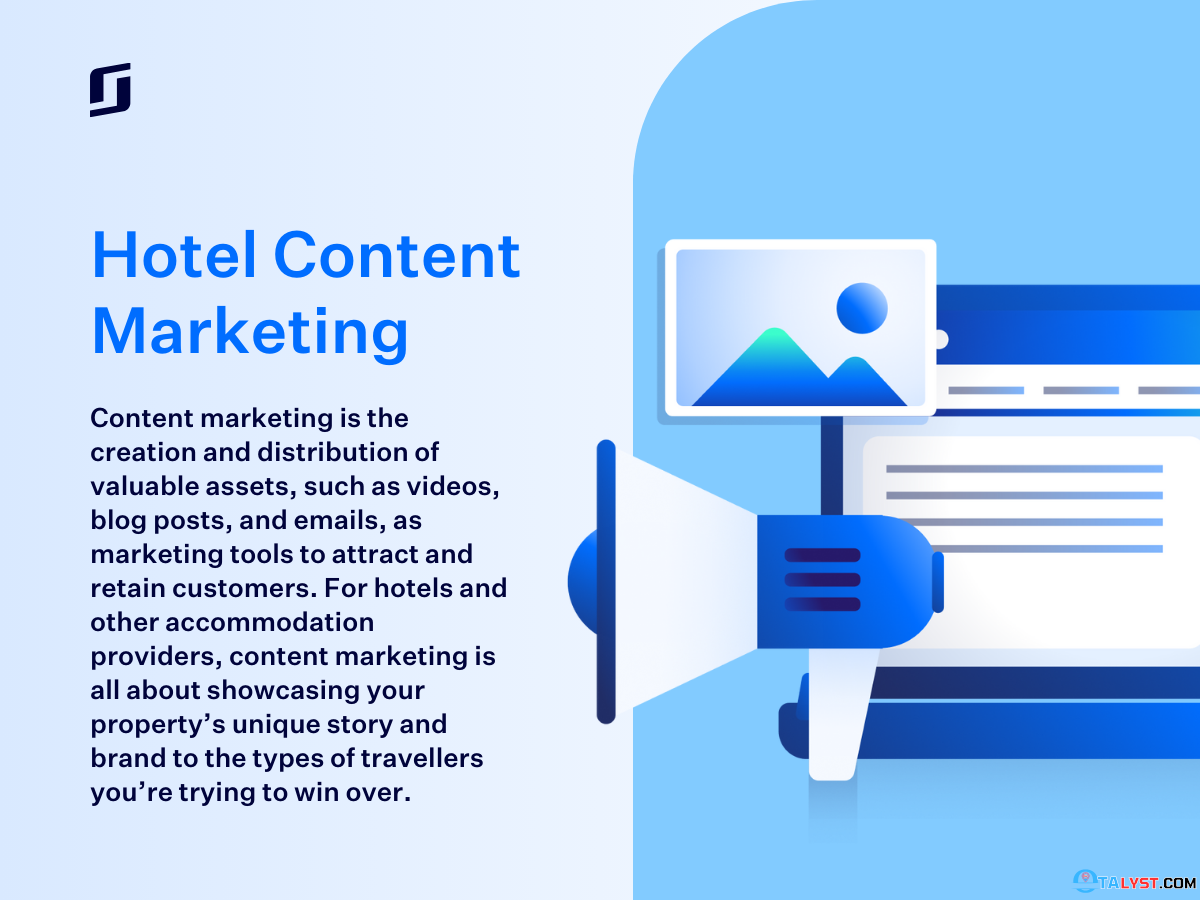Delve into the realm of storytelling within the hotel industry and understand its pivotal role in establishing a robust brand presence and forging connections with guests. Join the journey of discovery! Consider the beloved narratives in your favorite films, TV shows, or books. How challenging is it to turn them off or close the pages?
Now ponder why that is. Chances are, it’s because of the engaging plot and captivating characters. In essence, the story enthralls you, keeping you invested. Marketers in various industries harness the influential force of storytelling to shape their brand identity, promote products, and win over clients.
This approach is equally effective in the hospitality sector. As a result, an increasing number of companies actively incorporate storytelling into their hotel content marketing strategy to attract guests.
But what makes storytelling such a potent marketing technique? This three-part article series on storytelling for hotels will explore the reasons behind its success. In part one, we initiate the discussion with a brief introduction to storytelling, its significance, and the target audience for your narratives.
Let the journey commence!

What is hotel storytelling?
For millennia stories have been an integral part of human life. They serve to pass on knowledge, teach lessons, entertain and connect. For example, think of fables and how each one imparts a moral. Or how books, poems, songs and films move us with the stories they tell. Lastly, there are the stories we share with friends and family to connect with them and let them be part of our lives.
What does this have to do with marketing? Every commercial tells a tale. Typically, it focuses on how much a product or service improved the customer’s life by resolving an issue or fulfilling a desire.
Taking all this into account, here’s a short definition of storytelling as a marketing tool: Using a story or narrative to establish a connection with your audience. Simply put, a strong story gives your offer meaning and raises consumer perceptions of its worth.

So what should be your story’s subject? The strongest and most impactful stories are about how your offer addresses a potential guest’s values or desires.
The following example demonstrates this:
- Your hotel offers vast function spaces with the latest audio-visual equipment that allows organizers to host impeccably executed hybrid events.
- Your potential client – an event planner – wants to impress partners and stakeholders by finding the ideal venue for their next hybrid function.
→ The “opportunity to host impressive hybrid events” is the intersection of your potential client’s needs and what you can offer. That means, this topic should be prominent in your narrative.
It’s likely that your property doesn’t cater exclusively to one type of client (e.g. meeting planners). Instead, you probably target several different guest profiles such as couples on holiday, business travelers, MICE organizers, corporate groups, etc.
In that case, you can (and should) look at each guest segment’s needs and find out where it intersects with your offers. Yes, that means creating a separate story for each target market. And while that may be more work initially, it will make your marketing efforts more effective. Here’s why.
Why storytelling is so important for hotel marketing
You already know that storytelling can play a significant role in attracting and converting more of your ideal guests. Now it’s time to look at three reasons why that is.

Drawing in the right crowd
Storytelling lets you create a strong baseline and attract more of the right people – those who are more likely to choose your property because they want exactly what you provide. They’re your ideal guests.
Of course, for that to work, you need to know who these ideal guests are and what makes them tick. What do they want, need and expect from their stay with you? You probably know this since you already welcome these travelers at your hotel. Now it’s all about translating this knowledge of your guests into stories that continue to attract, engage and convert your target audience.
Connecting through values
It’s more important than ever to address your target market’s values in your marketing. Research has shown that 94% of people favor businesses that have a strong purpose. A different study revealed that 71% of millennials are ready to spend more when brands match their values.
Good storytelling allows you to showcase your values and shape how people perceive your brand. This can help your potential guests identify with your brand. As a result, it increases your chances of winning their direct bookings.
Making your property memorable
Apart from letting you address your ideal guest’s values, storytelling also makes your brand stick in their mind. Studies prove that, having found that people remember stories 22 times better than pure facts and figures.
There are a few reasons for this.
- First, stories appeal to more different senses and brain regions than dry facts. That leaves a stronger impression.
- Second, your stories can make your hotel more relatable and make potential bookers feel a connection to your offer.
- Finally, evocative stories stir up emotions like anticipation for an upcoming stay or longing for an experience only you provide.
In other words, a compelling story leaves a mark on your audience. And it’ll make them think of your hotel first when they’re ready to make a reservation.

While there’s a whole lot more to say about storytelling for hotels, this should give you a basic understanding of this powerful tool and why it’s so important. If you’d like to dive deeper into the importance of storytelling, watch this short video.
Now it’s over to you. Look at your ideal guests. Can you come up with three story angles that could make them more interested in your brand? That’s your homework for now.
In the next part of this article series we’ll look at how to use these angles to craft great stories. Then you’ll become even more convincing when you show your audience that they’ve come to the right place.
Tools like PMS (Property Management System) and CM (Channel Manager) only assist lodging establishments in operating more simply, saving time, and being more efficient compared to not using them. However, that is not the root of growth or the challenges faced in the accommodation business. If you want to effectively manage OTA channels and create stable growth, you should have a clear understanding of how OTA platforms operate, such as their nature, operational models, and how they display, calculate displayed prices, and collect prices (after deducting commissions). Of course, larger hotels that want to approach it systematically will do it synchronously from the beginning, but smaller lodging establishments wanting to reduce operational costs should overlook it and focus on optimizing display and providing outstanding customer care.
Synthesized by: OTA Lyst












































